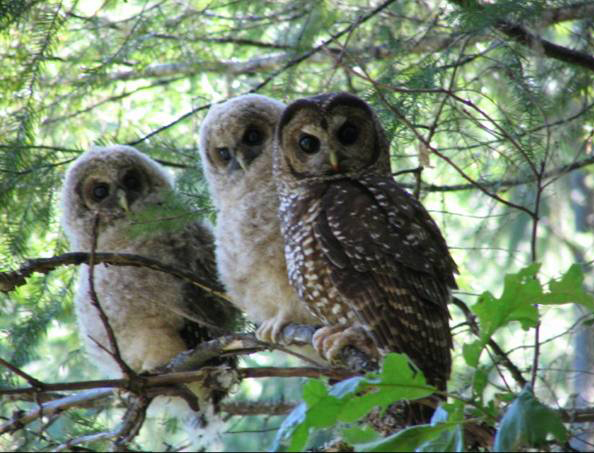The U.S. Fish and Wildlife Service and the National Marine Fisheries Service approved a 50-year plan by Fruit Growers Supply Co. to log 150,000 acres of forest in Siskiyou County, California, much of it essential old-forest habitat for spotted owls, salmon, and other sensitive wildlife. The agencies approved a “habitat conservation plan” (HCP) for Fruit Growers that allows the company to log thousands of acres in the next 10 years in exchange for future, and highly uncertain, habitat development. Included in the plan is approval to harm or even kill more than 80 northern spotted owls.
“Fruit Growers’ 50-year plan allows rampant logging in the first 10 years in exchange for 40 years of empty promises to do good after the trees are gone,” said WELC client George Sexton, Conservation Director of the Klamath-Siskiyou Wildlands Center. “The plan fails salmon, anglers, and anyone who cares about a healthy forest in Northern California.”
Under the Endangered Species Act, habitat conservation plans allow private individuals to harm or even kill endangered species, but only when the plan includes concrete and certain measures that provide additional protections for listed species. The current plan for Fruit Growers allows much of the logging to happen in the first 10 years. Many of the promises for long-term habitat protections after the forests are logged are vague and non-binding.
The land at risk is located between Weed, California, and the Oregon border, on both sides of Interstate 5, mostly in Siskiyou County. It is populated by Douglas fir, white fir, and montane hardwoods. The Klamath and Scott rivers would be particularly hard hit by the logging. Both the Environmental Protection Agency and the California Regional Water Quality Control Board have criticized the approved HCP for allowing further degradation of water quality in an area already out of compliance with the Clean Water Act.
On August 12, 2013, we filed suit to halt this habitat conservation plan, and in April 2015, Judge Cousins of the Northern District of California ruled that the U.S. Fish and Wildlife Service and National Marine Fisheries Service violated the Endangered Species Act and the National Environmental Policy Act in several ways. The court also ruled that that the incidental take permit and biological opinion for coho salmon were invalid because NMFS failed to analyze the short-term impacts to coho salmon as well as the near-term habitat loss for coho salmon as a result of the logging.
Finally, the Court ruled that the environmental impact statement was invalid because USFWS and NMFS failed to consider the cumulative effects of past, present, and reasonably foreseeable future timber harvest projects, use of herbicides, and water withdrawal projects. Further, the Court ruled that the EIS was invalid because it failed to quantify certain environmental effects, including the amount of suitable owl habitat and road density in the project area.
(WELC project #236)


